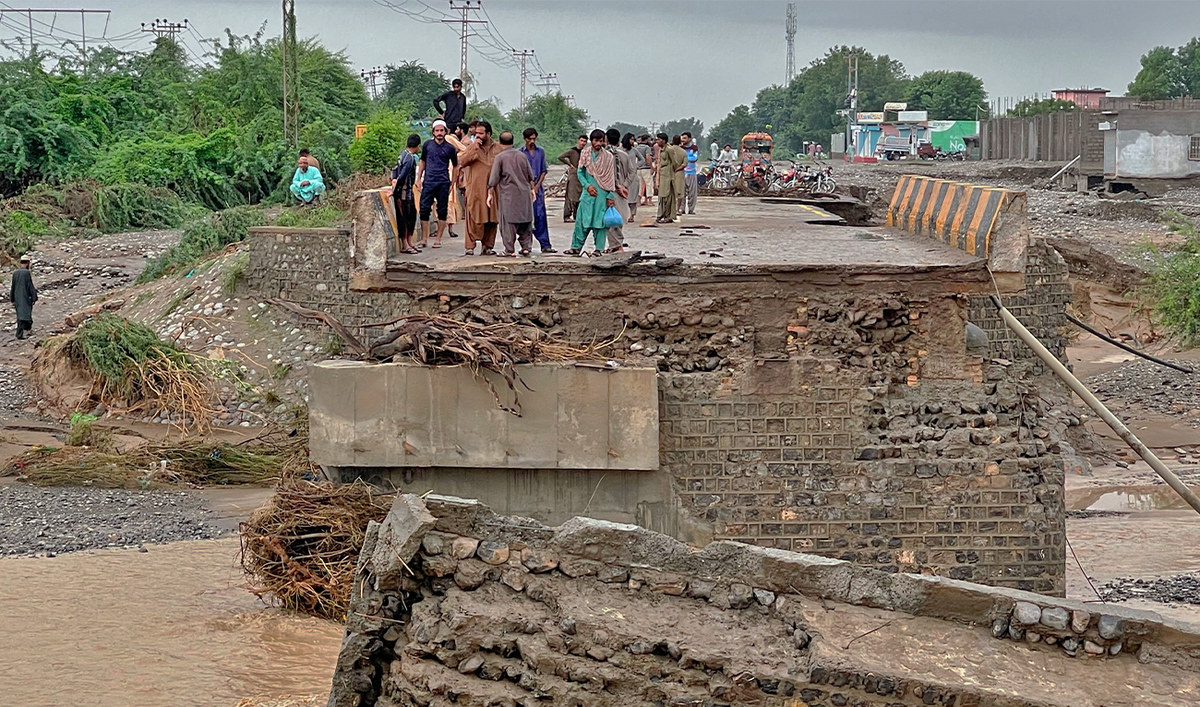ISLAMABAD: Prime Minister Shehbaz Sharif on Thursday formed a committee of federal ministers to assess damages around the country as the death toll from more than six weeks of monsoon rains and flash flooding across Pakistan crossed 350.
The National Disaster Management Authority (NDMA) said on Thursday rains had claimed at least 357 lives and injured 408 people since mid-June, with the most casualties, 106, taking place in the impoverished southwestern Balochistan province.
“The committee should visit all the affected areas within the next four days and on August 4, short-term, mid-term and long-term comprehensive plans will be formed in the light of the committee’s recommendations,” the Prime Minister’s Office said in a statement, adding that the federal government would fully support provincial governments in dealing with the effects of the natural disaster.
“The federal government will write a letter to the honorable court to provide the funds available in the Supreme Court for the rehabilitation of the infrastructure affected by the recent rains and floods in Karachi,” the PM office said.

Rescue workers help villagers to evacuate them from flooded area caused by heavy rains, in Lasbella, a district in Pakistan's southwest Baluchistan province, Tuesday, July 26, 2022. (AP)
Earlier on Thursday, PM Sharif took to Twitter and said climate change was “an undeniable reality of our times & has serious consequences for developing countries like Pakistan.”
“Our ongoing floods & torrential rains need to be seen from that angle. The government is aligning its development goals with the climate change requirements.”
At a press conference on Thursday, Chief Secretary Balochistan Abdul Aziz Uqaili said the province had received 500 percent more rain during this monsoon season than the 30-year average.
“111 people including women and children have died in the entire province and over 1,000 are injured in torrential rains and floods,” he said.

People examine a damaged bridge after flooding due to heavy rains, in Lasbella, a district in Pakistan's southwest Baluchistan province, on July 26, 2022. (AP)
Meanwhile, the Pakistan Army said it was assisting the civil administration in rescue and relief operations, with army aviation helicopters helping to shift stranded people to safer places.
“Two army aviation helicopters have been flown from Karachi to Othal , Lasbella areas. These helicopters had attempted during last 48 hours also but could not fly due to bad weather conditions,” ISPR, the army’s media wing, said. “The helicopters will now shift stranded people to safer places and also transport necessary relief items.”
Doctors and paramedics were also providing medical care to affected people, the statement said:
“Coastal highway has been opened for all kinds of traffic. Efforts are in hand to repair the damaged communication infrastructure and restore utilities.”



















